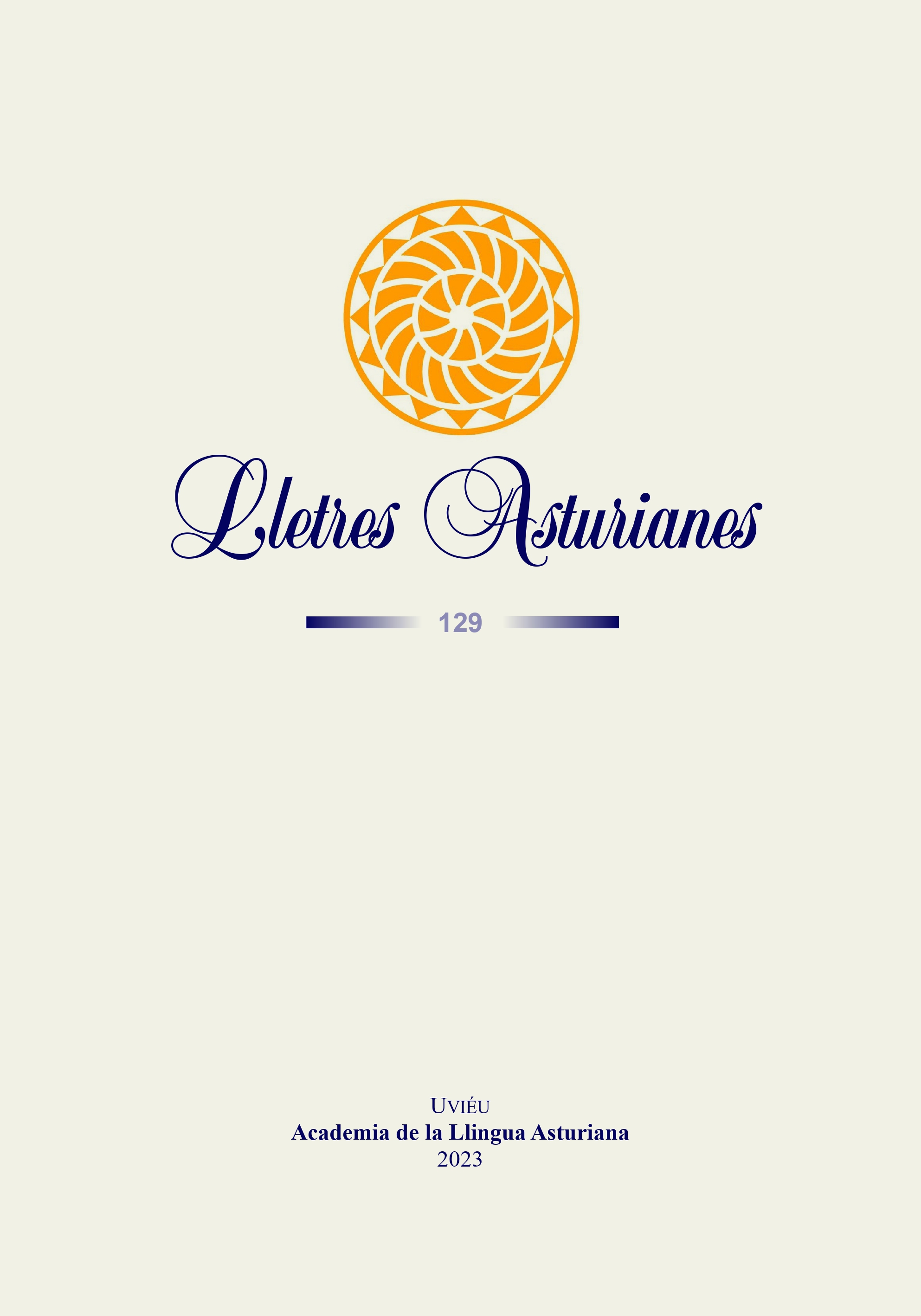Abstract
Manuscripts and Editions of Correspondence from Asturians is an undergraduate Digital Humanities research project in which participants in a short term study abroad program contribute to the recovery and edition of letters sent by Asturian immigrants to America (the continent) to their families back in Asturias in the late XIX and early XX centuries. Participants, who are bilingual speakers of Spanish and English, share with the authors of the letters the familial history of immigration, as well as the experience of being speakers of a minoritized language. Those letters, in turn, serve as a testimony of the presence of code-meshing, as well as that of multiple features of Asturian language, in the text of the letters.
References
Álvarez Sancho, I. (2022). New Tradition and Activism in Minoritized-Language Communities: The Time of post-2008 Asturian Music. Lletres Asturianes, 127: 55-82.
Cubillos, J. H., Chieffo, L., & Fan, C. (2008). The Impact of Short-Term Study Abroad Programs on L2 Listening Comprehension Skills. Foreign Language Annals, 41(1), 157-186. https://doi.org/10.1111/j.1944-9720.2008.tb03284.x
Czerwionka, L., Artamonova, T., & Barbosa, M. (2015). Intercultural knowledge development: Evi-dence from student interviews during short-term study abroad. International Journal of Intercul-tural Relations, 49, 80-99.
https://doi.org/10.1016/j.ijintrel.2015.06.012
Fernández Martínez, A. (1892). Pinceladas cuadros de costumbres, descripciones y leyendas de la zona oriental de Asturias. Llanes: Imprenta de Manuel Toledo.
Flores, N. & Rosa, N. (2015). Undoing Appropriateness: Raciolinguistic Ideologies and Language Diversity in Education. Harvard Educational Review, 85(2), 149-171.
Gabriel Fernández, N. de (1997). Alfabetización y escolarización en España (1887-1950). Revista de Educación, 217-243.
Gerber, D. A. (2005). Acts of Deceiving and Withholding in Immigrant Letters: Personal Identity and Self-Presentation in Personal Correspondence. Journal of Social History, 39(2, Winter), 315-330.
Greenman, S. & Chepp, V. and Burton, S. (2022). High-impact educational practices: leveling the playing field or perpetuating inequity? Teaching in Higher Education, 27(2), 265-278.
Hatton, T. J. & Williamson, J. G. (2001). What Drove the Mass Migrations from Europe in the Late Nineteenth Century? Population and Development Review, 20(3), 533-599. https://www.jstor.org/stable/2137600?seq=1#metadata_info_tab_contents
Hevia Artime, I. & González Riaño, X. A. (2014). Los xestores educativos énte’l valir social, cultural y educativu de la Llingua Asturiana. Un estudiu empíricu. Lletres Asturianes, 111, 151-169.
Hevia Artime, I. & González Riaño, X. A. (2014). Asturianu y castellanu nes aules d’Asturies: usu y actitúes del alumnáu inmigrante y autóctono, Lletres Asturianes, 116, 127-148.
Ishiyama, J. (2002). Does early participation in Undergraduate Research Benefit Humanities and Social Sciences Students? College Student Journal, 36(3), 380-386.
Lamar Prieto, C. & González Alba, Á. (2021). Perception of Cultural Values on Display on Instagram: A Case study of SA for HS Spanish. Cultural Diversity in Intercultural (Cross-cultural) Com-munication: Global Case Studies. Cambridge Scholars Publishing, 151-172.
Lamar Prieto, C. & González Alba, Á. (2022). Public Engagement and the Performance of Identity on Instagram of Heritage Speakers of Spanish Studying in Spain. In Ramírez, D. & Plascencia, D. Imagining Latinidad: Digital Diasporas and Public Engagement Among Latin American Mi-grants, ed. Ramirez & Plascencia. (pp. 207–224). Leiden: Brill.
Llamedo Pandiella, G. (2022). Propuesta d’intervención pal enseñu y normalización del asturianu al traviés de la didáctica de la intercomprensión románica. Lletres Asturianes, 126, 63-98.
http://doi.org/10.17811/LLAA.126.2022.63-98
Llordén Miñambres, M. (2008). Las asociaciones de los inmigrantes asturianos en América. In Blanco Rodríguez, J. A. (ed.), El asociacionismo en la emigración española a América (pp. 151-197). Salamanca: Universidad/Junta de Castilla y León.
López, J. (1994). Emigración y liberalismo. El Club Allandés de La Habana”. In Gómez Gómez, Pedro (ed.), De Asturias a América. Cuba (1850-1950). La comunidad asturiana de Cuba. Allande, Principado de Asturias.
Miglio, V. (2017). Galician Studies, Language, and Linguistics in US Academic Curricula. In Sampe-dro Vizcaya, Benita and Losada Montero, José A. (eds.). Rerouting Galician Studies, Multidisci-plinary Interventions (pp. 243-254). London: Palgrave Macmillan.
Murphy, E. C., & Smith, S. (2017). Undergraduate Students and Digital Humanities Belonging: Met-aphors and Methods for Including Undergraduate Research in DH Communities'. Digital Hu-manities Quarterly, 11(3).
http://www.digitalhumanities.org/dhq/vol/11/3/000305/000305.html
Reynolds-Case, A. (2013). The Value of Short-Term Study Abroad: An Increase in Students' Cultural and Pragmatic Competency. Foreign Language Annals, 46(2), 311-322. https://doi.org/10.1111/flan.12034
Sánchez Alfonso, B. (2002). La época de las grandes migraciones: desde mediados del siglo XIX hasta 1930. Mediterráneo Económico, procesos migratorios, economía y personas, 1, 15-29.
Schwieter, J., Ferreira, A., & Miller, P. (2018). Study Abroad Learners’ Metalinguistic and Sociocul-tural Reflections on Short- and Long-Term International Experiences. Intercultural Education 29 (2), 236-257.
https://doi.org/10.1080/14675986.2018.1429169
Suari Rodrigue, C. (2020). L’enseñu virtual de la llingua asturiana (1996-2019): averamientu etnográ-ficu, estudiu evaluativu y propuestes de futuru. Lletres Asturianes, 122 (2020), 165-196.
https://doi.org/10.17811/llaa.122.2020.165-196
Uría, J. (1984). Los indianos y la instrucción pública en Asturias. Indianos, monografía de Los Cua-dernos del Norte (pp. 102-119). Uviéu: Caja de Ahorros de Asturias.
Yosso, T. (2006). Whose culture has capital? A critical race theory discussion of community cultural wealth. Race Ethnicity and Education, 8(1), 69-91.


